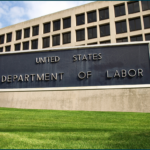 Recently, the Southern District of Illinois had occasion to address what are becoming familiar requests for production of parties’ Facebook pages. See Stallings v. City of Johnston City, 2014 U.S. Dist. LEXIS 68566 (S.D. Ill. 2014). The dispute underscores the importance of making sure you and your attorney understand the types of available evidence on social media sites; how to request and access that information; and how to respond to such a request. It can make or break your case.
Recently, the Southern District of Illinois had occasion to address what are becoming familiar requests for production of parties’ Facebook pages. See Stallings v. City of Johnston City, 2014 U.S. Dist. LEXIS 68566 (S.D. Ill. 2014). The dispute underscores the importance of making sure you and your attorney understand the types of available evidence on social media sites; how to request and access that information; and how to respond to such a request. It can make or break your case.
The Stallings case is an employment case in which Stallings, a former employee of Johnston City, is pursuing the City for wrongful termination. The City requested production of:
Each and every social media posting by Stallings from 2011 to the present concerning her employment at Johnston City, allegations of wrongdoing against her, her suspension or termination, the investigation into missing money or wrongdoing in the Water Department, her lawsuit, her emotional or physical well-being, or any other matter identified in her Amended Complaint. This request includes all postings made by Stallings at any time on a Facebook account, Twitter, Instagram, or any other social media site.
Stallings apparently was a frequent user of Facebook and had commented on the case on Facebook. In response to the discovery request, Stallings produced in hard copy 500 pages of Facebook activity. She had heavily redacted content she deemed irrelevant and not called for in the discovery request, including conversations about minors.
The City complained of the heavy redactions and mode of production, which was different than the way the content was originally stored. In a discovery dispute conference, Magistrate Judge Williams ordered that Stallings provide the City with either an electronic version or a hard copy of the unredacted pages.
Stallings argued that Facebook only allows the download of Facebook data in its entirety and that it took her attorney and a paralegal more than a week to print, redact, and compile the 500 pages of her Facebook activity. However, the judge noted that counsel could provide defense counsel with an entire unredacted file containing documents from 2011 to the present without going through the time and expense of redacting and sorting the pages. It appears the judge was unpersuaded by Stallings’ reasoning for the redactions, noting that there was no privilege that attached to the relevant Facebook conversations, and therefore, Stallings’ counsel’s extensive redactions were unnecessary.
Stallings appealed the order to District Court Judge Herndon, who agreed with Judge Williams. Stallings’ arguments that such production was unduly burdensome and irrelevant were unconvincing. Judge Herndon noted that the conversations could contain admissions against interest which would be relevant to the litigation, and that it would be quite easy to simply download and send the entire Facebook file electronically.
There are a few good takeaways from the decision:
- The City and defense counsel were successful in securing an order for the Facebook information most likely because their discovery request was specifically tailored to information that was easily determined to be relevant. Had they propounded a request for any and all social media accounts and postings, the result likely would have been different. Therefore, specifically tailoring your discovery requests sets you up well for any later discovery dispute.
- Responding to a discovery request by producing only heavily redacted documents in hard copy is likely not the best approach, especially when there are simpler and more complete ways of responding to a very specific request.
- Courts are becoming more familiar with social media, the importance of evidence found within those sites, and the ways in which it can be discovered.
When facing any kind of fact-intensive claims, you want to be sure your attorney is familiar with technology so that you are successful in the discovery process. For more information, please contact any member of the KDDK Litigation and Trial Services Practice Team.




